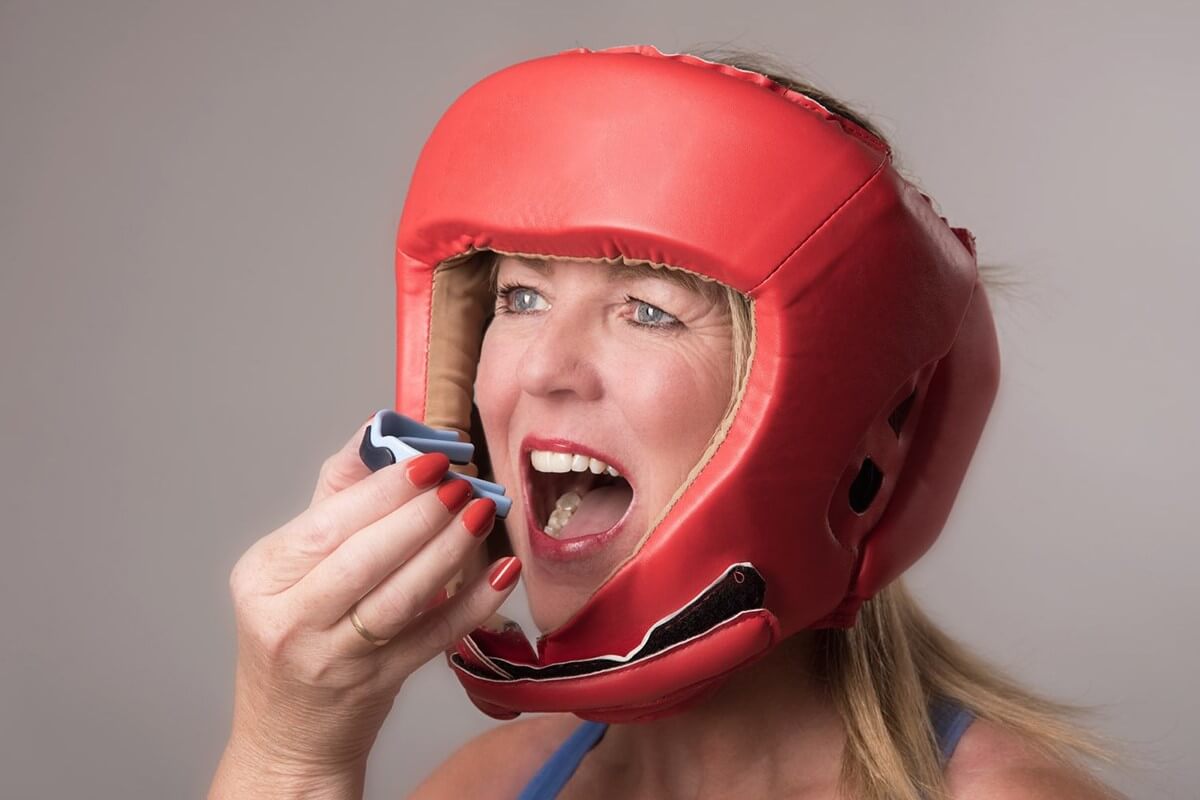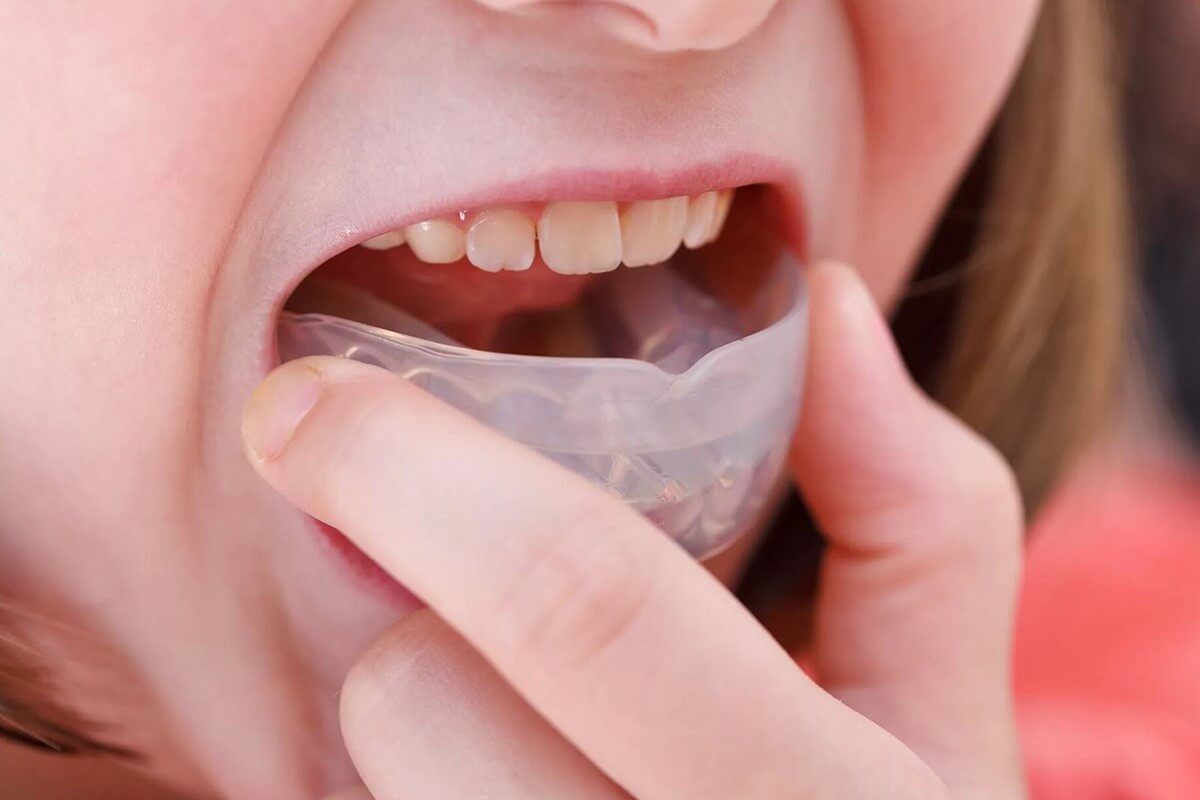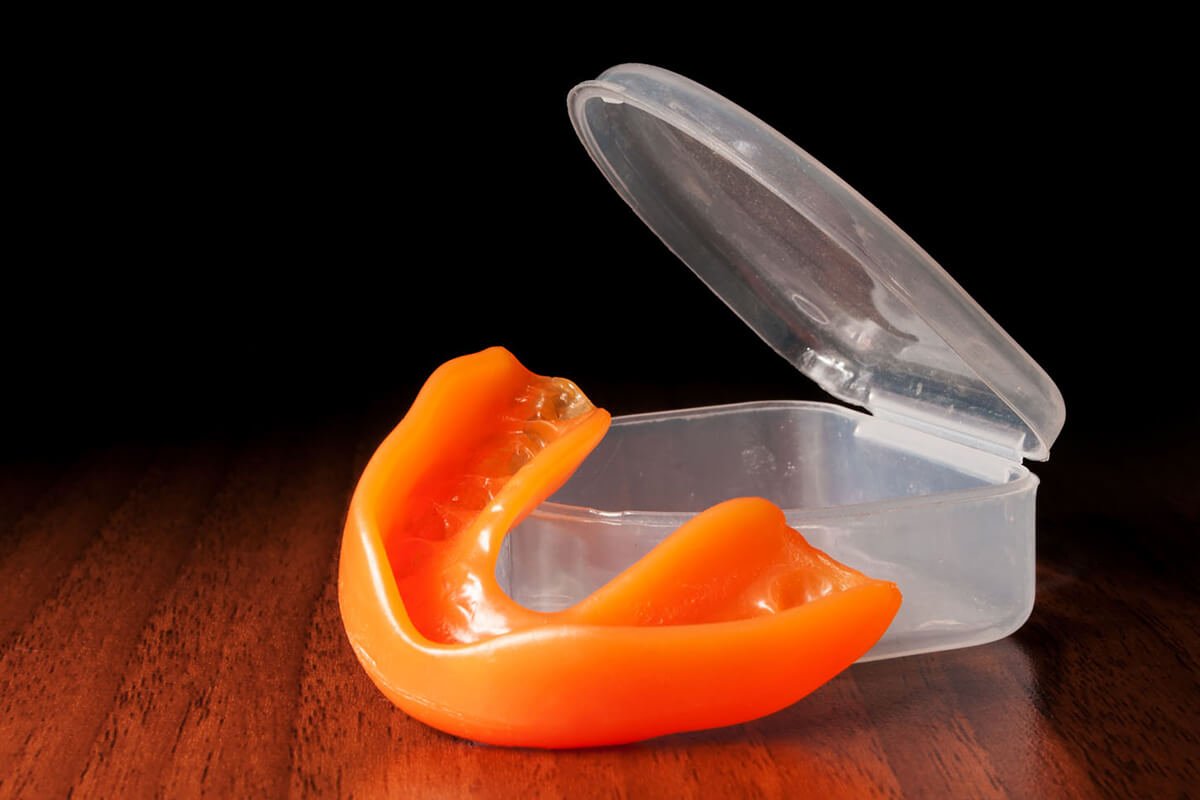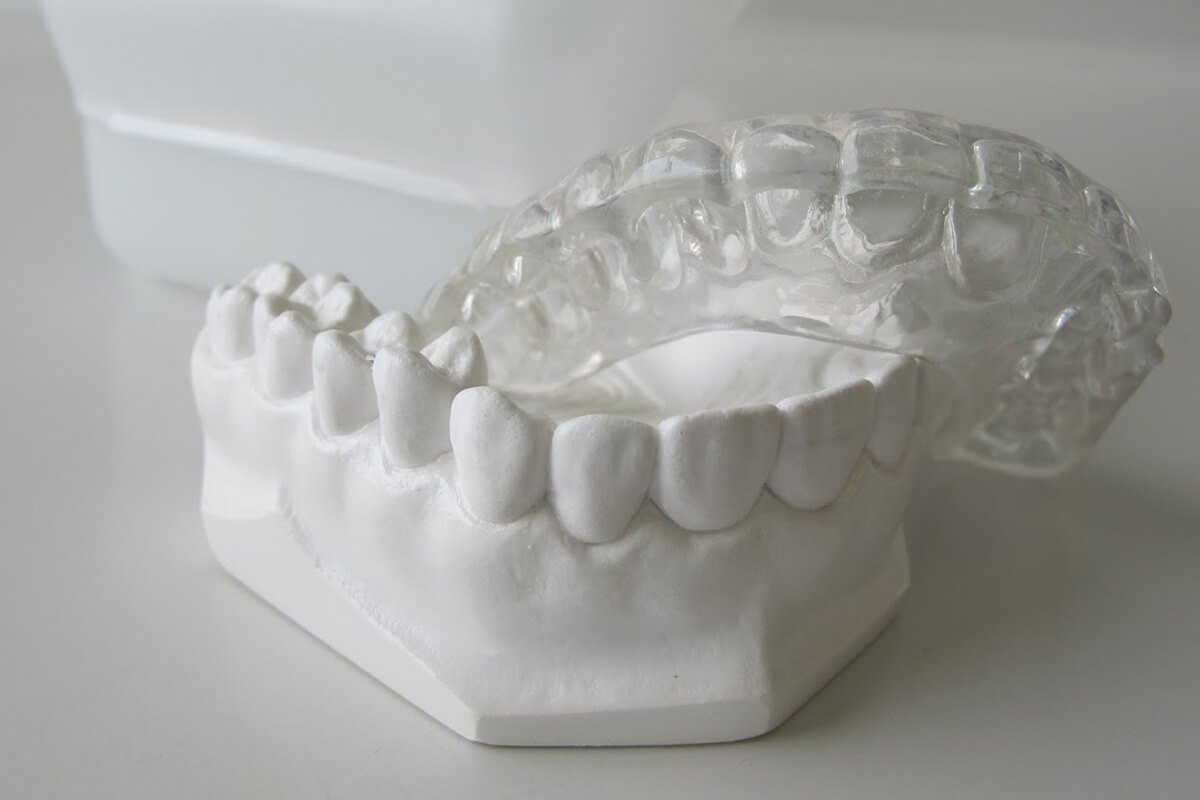Sports guards, or mouthguards, are worn to protect your teeth from severe damage and injuries while you participate in physical activities or sports. Though they’re most commonly used in fast-paced sports such as football or hockey, they can protect athletes’ teeth during any kind of activity that potentially exposes them to extreme pressure.
Nothing interrupts sports more than a dental emergency. So, if you play a contact sport, don’t regret waiting until your teeth get injured or knocked out. Talk to your dentist and get a custom sports guard as soon as possible. In this, we intend to explain how mouthguards prevent sports dental injuries so you can make an informed decision for the well-being of your smile.
RISKS OF NOT WEARING A SPORTS GUARD:
Without a sports mouthguard, athletes are relatively at higher risk of suffering severe oral injuries. Common sports injuries that happen without the use of a mouthguard typically include:
- Chipped, Broken, or Knocked-out Teeth
- Nerve and Root Damage to the Teeth
- Lip and Cheek Injuries
- Fractured Jaws
- Fractured Crowns
- Concussions
HOW SPORTS GUARDS PROTECT YOUR TEETH?
Research has demonstrated that about a third of dental emergencies occur due to sports. When high speeds and passionate players come together, it can cause extreme danger to your teeth. Therefore, a sports guard is required to protect your teeth from injury, whether you’re a professional athlete or just playing for enjoyment.
An athletic mouth guard is worn over the upper teeth during sports. It creates a layer of protection between your mouth and the point of impact. In this way, these mouthguards protect your teeth from being knocked out if you have fallen on the football field or punched right in your mouth in the boxing ring. Therefore, a sports guard should be durable enough to resist concentrated force. Athletes should also be able to breathe and talk comfortably while wearing their sports guards.
Players acquire numerous advantages by wearing a mouthguard during contact sports. Mouthguards provide:
- A secure and stable fit
- Protection from tooth loss
- A reduced chance of concussion
- Protection of dental work from damage
In addition to protecting your teeth from damage, sports guards can also improve your performance. They can boost your confidence as you feel less fearful of potential injuries. These protective mouthguards also protect you against your natural instinct to clench.
Clenching speeds up the production of the stress hormone cortisol in our body, which can negatively impact performance. Sports guards can effectively inhibit clenching habits and take your game to unprecedented levels of success.
TYPES OF SPORTS GUARDS:
Sports guards are fabricated from thick plastic material that covers the upper teeth, protecting the mouth structure during sports. Sports guards typically differ in comfort and cost. The most common types of sports guards are:
1. STOCK MOUTH PROTECTORS:
Stock mouth protectors are ready to wear and can be easily purchased at any sports store. These are the cheapest options for mouthguards. But since these are pre-formed and not customized to fit the athlete’s mouth, they typically don’t fit well, making it hard to talk and breathe. As a result, stock mouthguards are not as comfortable as compared to other types. While better than nothing, a stock mouthguard can still provide some sort of protection.
2. BOIL AND BITE SPORTS GUARDS:
These sports guards are easily available at most sporting goods stores. When boiled, they get soft enough to bite into and leave an imprint on the athlete’s teeth. These protective mouthguards are often fabricated with medical-grade silicone or plastic.
3. CUSTOM-FITTED SPORTS GUARDS:
Custom-fitted mouthguards are provided by your dental professional according to your exact tooth impressions. Because of the precise size and thickness of the guard, it is well-fitted in your mouth, making breathing and talking as comfortable as possible.
They are also regarded as the most durable mouthguards and provide the utmost protection against the shock of collisions. These are created from a tear-resistant material and are easier to clean as well.
WHAT TO LOOK FOR WHILE CHOOSING A MOUTHGUARD?
When selecting a mouthguard, consider the following important components that impact.
How helpful your mouthguard will be:
- Proper Fit: Ensure it covers your teeth and gums and fits snugly in your mouth.
- Comfort: Your mouthguard should feel comfortable and not bulky. It should not make it challenging to breathe or talk.
- Stays In Place: Your mouthguard shouldn’t move around; it should stay over your teeth whenever you move your jaw or talk.
- Made of Resilient Material: It is up to you whether you prefer a flexible and softer material for your mouthguard or go for a harder one. But your mouthguard should comprise high-quality material that effectively absorbs tension and pressure and last for many years.
Athletes who don’t wear sports guards are twice as likely to experience an oral injury, and treating those injuries requires extensive procedures that may cost thousands of dollars.














